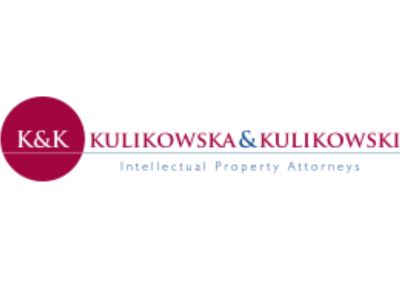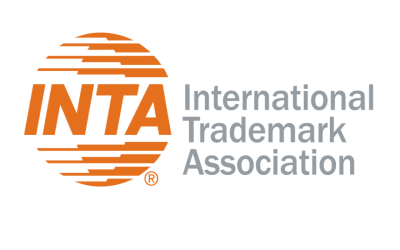Does the word “smart” only mean “intelligent”? What is the significance of an exclamation mark as part of a trademark applied for? Can earlier European Union Intellectual Property Office (EUIPO) decisions be successfully invoked? These are questions that were raised in the judgment of the General Court on 6 September 2023 in the case of Allegro sp. z o.o. v EUIPO, Case T-658/22.
Allegro is a Polish e-commerce platform, operating in six Central and Eastern European countries. After Amazon and eBay, it is the third largest e-commerce platform in Europe in terms of number of visitors.
In 2021, the company filed an application with the EUIPO for the word mark SMART! in Classes 9, 35, and 42, covering, among other things, computer software and mobile applications for operating online shops, online market operation, classified ads services, advertising and promotional services, or marketing and computer services.
The EUIPO refused to register the said mark on the basis of Article 7(1)(b) of Regulation 2017/1001, according to which the absence of any distinctive character constitutes an absolute ground for refusal of registration. According to the EUIPO, an English-speaking consumer would understand the sign SMART! as “intelligent, having a certain degree of intelligence, able to respond or react to different requirements, in different situations or taking into account past events; programmed to be able to act independently”. By the same token, according to the EUIPO, the public will perceive the sign as praising the goods and services designated with it that are smart in nature or use smart technology. The exclamation mark does not make the sign, as a whole, distinctive but merely highlights the listed characteristics of the goods and services.
Allegro appealed against the decision to refuse registration, arguing that the advertising function of the sign, praising the goods and services, did not preclude the sign from also functioning as an indication of commercial origin. The company argued that there is no single, simple phrase explaining the word “smart” and that it is “intangible and multidimensional” and therefore has a distinctive character. Its meaning cannot be reduced to “intelligent” alone. While the term “smart” may be used in commerce to describe features of machines or appliances, it is never used in the context of services. Thus, with respect to the goods and services indicated in the application, the mark SMART! will at most be allusive, indicating that it is intended for clever people and understood in a mischievous and thus original way.
As for the exclamation mark, it draws the consumer’s attention to the fact that “smart” is not a word used to describe the goods, but it is used as a trademark. In addition, Allegro accused the EUIPO of a lack of consistency in its decisions and of violating the principle of equal treatment of each applicant because many marks with the word “smart” had been registered in the past, including for the goods and services covered by the discussed application.
However, the Board of Appeal dismissed Allegro’s appeal on the grounds that registration of signs with a purely advertising function was inadmissible and that the mark applied for lacked distinctive character in relation to the goods and services indicated, namely, lacked the capacity to indicate that they originate from one specific undertaking. The Board of Appeal decision was appealed by Allegro, which sought its annulment.
The General Court emphasized at the outset of its judgment on 6 September 2023 that according to established case law, registration of trademarks consisting of signs that are used as advertising slogans, indications of quality, or to encourage the purchase of goods or services is not per se excluded. There is a condition, however – the relevant public must be able to immediately perceive in such a sign an indication of commercial origin in addition to its advertising function. Furthermore, when assessing the distinctive character of such signs, one should not apply criteria stricter than those used for other signs.
The relevant public in the commented case, as established by the EUIPO and not contested by Allegro, will be at least average consumers from English-speaking EU countries, relatively well informed and sufficiently observant or showing a higher level of attention.
Allegro’s objection was that the EUIPO made several errors when assessing the distinctiveness of the trademark applied for. The court, however, disagreed. It held that the EUIPO correctly established that the term “smart” was commonly used in the English language and immediately understandable for the relevant public as meaning “intelligent” and, as such, being indicative of positive characteristics of goods and services. This positive message, in turn, can be associated with the goods and services under consideration.
In regards to the exclamation mark, it is only intended to reinforce that message and is an element attracting attention rather than having a distinctive character in its own right. The court did not find the combination of SMART with the exclamation mark to be unusual or atypical either, since it conforms with the grammatical rules of the English language. The mark applied for will be seen as a mere advertising phrase. It does not show originality and does not require any interpretative effort on the part of the public and, consequently, is not capable of indicating to the consumer the commercial origin of the goods and services.
In assessing the allegation of the lack of consistency in the EUIPO’s decision-making practice, the court emphasized that it is obligated to exercise its powers in accordance with the general principles of European Union law, including the principle of equal treatment and the principle of good administration while observing the principle of legality. Although the EUIPO is obligated to take into account previous decisions and to assess in each case whether the decision should not be similar, in light of the specific circumstances of the given case, the assessment of the registrability of a mark should be made solely based on Regulation 2017/1001 and its interpretation by European courts. Therefore, the applicant cannot invoke previous third-party registrations to obtain an identical decision.
The objections raised by Allegro were found to be without merit and, consequently, the court dismissed the appeal in its entirety.

Written by Beata Wojtkowska
Partner, Kulikowska & Kulikowski
The Trademark Lawyer Editorial Board Member

Written by Karolina Szafarowicz
Trademark Attorney Trainee, Kulikowska & Kulikowski
You may also like…
INTA files statement in intervention in EU case on the inherent distinctiveness of color combination trademarks
New York, New York—July 24, 2024—The International Trademark Association (INTA) has filed a Statement in...
Bytedance stumbles in Singapore: IPOS rejects TIKI trademark challenge
The social media giant Bytedance, owner of the ubiquitous TikTok platform, recently suffered a setback in Singapore....
TOUR DE FRANCE fails in the third stage against German fitness studio chain
At the end of June, the 111th edition of the Tour de France kicked off. June also saw the end of a dispute between...
Contact us to write for out Newsletter














